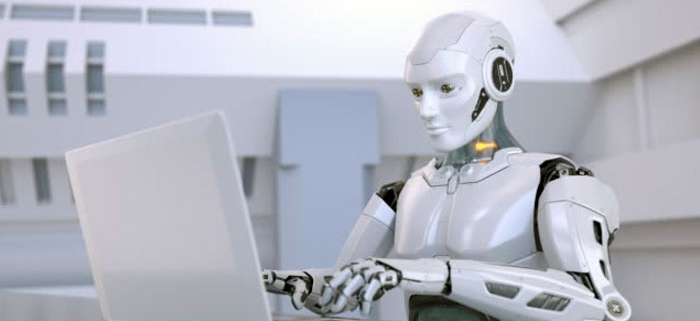The Future of Captioning: Advancements in AI and Automated Captioning Technology
AI is all the talk these days, and it’s not hard to see why. Artificial intelligence is paving the way for a more accessible and inclusive future, but will it be taking everyone’s job? And what about captioning? Should we just give up now?
In this post, we’ll take a closer look at the future of captioning and the role that AI and automated captioning technology will play.
Advancements in AI and Automated Captioning Technology
AI and automated captioning technology have come a long way in recent years, thanks to advancements in machine learning and natural language processing. Here are some of the key advancements that are driving the future of captioning.
Automatic Speech Recognition (ASR)
ASR technology uses machine learning algorithms to transcribe spoken words into text. This technology is becoming increasingly accurate, making it possible to generate captions automatically.
Language Translation
AI technology is also being used to translate captions into different languages automatically. This makes it possible to create captions for global audiences quickly and easily.
Contextual Understanding
AI technology is becoming better at understanding the context in which captions are being used. For example, AI can recognize the difference between a serious news program and a comedy show and generate captions accordingly.
Quality Control
Automated captioning technology is also becoming more effective at quality control. Machine learning algorithms can identify and correct errors in captions, ensuring that the captions are accurate and error-free.
Why AI will never be better than Humans
While advancements in AI captioning technology are impressive, it is unlikely that AI captioning will ever fully replace human captioning. Here are some reasons why 121 will still be in business for many years to come…
Contextual Understanding
One of the biggest challenges for AI captioning is contextual understanding. While AI is becoming better at recognizing different accents, dialects, and speech patterns, it still struggles to understand the meaning behind words and phrases. This can lead to errors in captions that can be confusing or misleading for viewers. Only true native speakers can appreciate the difference.
Quality Control
AI captioning technology still requires human oversight to ensure that the captions are accurate and error-free. While machine learning algorithms can identify and correct errors in captions, they cannot always catch subtle nuances or cultural references that may be important for viewers. No matter how good AI gets at this, there will always need to be someone to check it.
Language Differences
AI captioning technology is not always effective at understanding the nuances of different languages and cultures. This can result in inaccurate or inappropriate captions. Human captioners, on the other hand, are able to understand the cultural context of language and provide accurate captions that are appropriate for different audiences.
Subject Matter Expertise
In some cases, human captioners may have subject matter expertise that is necessary for accurately captioning certain types of content. For example, a human captioner with expertise in medical or legal terminology may be better equipped to caption a medical lecture or a courtroom exchange than an AI captioning system.
Personalisation
Human captioners can personalize captions to meet the needs of specific audiences. For example, a human captioner may use different language and terminology for a young audience versus an older one. This level of personalisation is difficult for AI captioning technology to replicate.
Empathy and Understanding
Finally, human captioners bring a level of empathy and understanding to their work that is difficult for AI captioning technology to replicate. Human captioners understand the importance of accurate and accessible captioning and work to ensure that their captions are as clear and helpful as possible for viewers.
While AI captioning technology is improving rapidly, there are still many challenges that must be addressed before it can fully replace human captioning. As technology continues to advance, it is likely that AI and human captioning will work together to create more accessible and inclusive content for all audiences.
Whatever happens, the future of captioning is looking bright, and here at 121 Captions, we’re happy to welcome anything that helps make the world more accessible.




Leave a Reply
Want to join the discussion?Feel free to contribute!